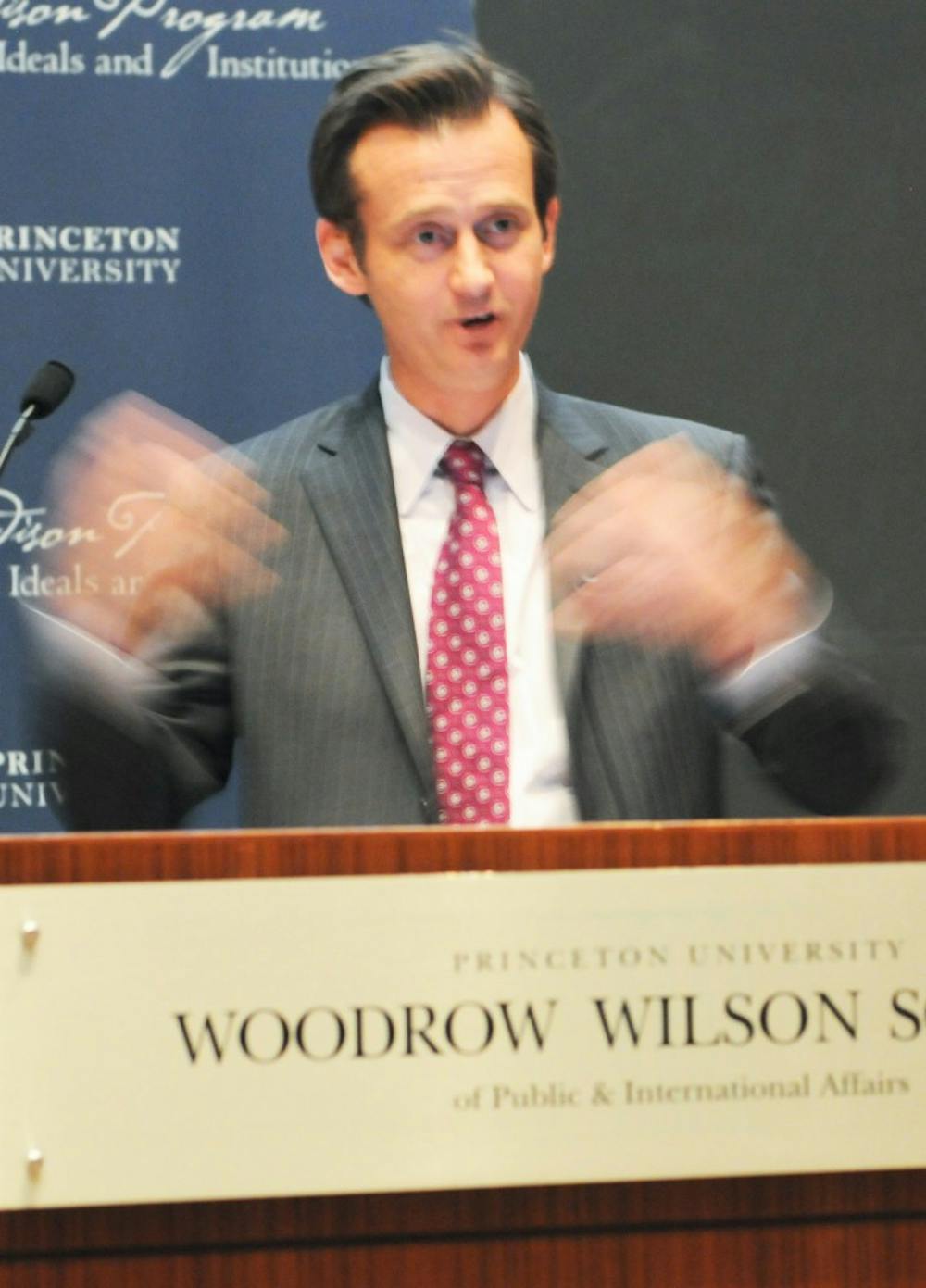Complexity and decentralization are two of many factors that exacerbate the criminality and corruption in financial institutions, professor of politics in the Wilson School Nolan McCarty said in a lecture on Wednesday.
McCarty began his lecture by discussing the main thesis of his newly co-authored book, “Political Bubbles: Financial Crises and the Failure of American Democracy.” His discussion focused on financial crimes, such as money laundering and bank fraud, as systematic problems that shed light on the relationship between the financial sector and the federal government. McCarty used the recent legal conflict between Bank of America and the Federal Housing Finance Agency to explain the legal inadequacy in the status quo. While Bank of America paid $9.5 billion as a settlement for faulty mortgage-backed securities, this settlement is minuscule in comparison to the net revenue they made committing the financial crime.
“If we think of these settlements as being deterrent, I think there are a lot of questions there,” McCarty said.
He noted that most crises do not result from a failure of the entire financial sector but rather only a couple of “bad apples.” Because only a few financial companies commit crimes, federal agencies have the tendency to wait until they commit the crime to catch them, rather than taking proactive enforcement. As a result, it is difficult to know how much crime was committed, and only a fourth of the estimated number of financial crimes are actually revealed.
But a larger consequence, according to McCarty, is that the “bad apple” financial institutions will soon win a comparative advantage over the entire legal framework.
The complexity and decentralization of our financial system, McCarty explained, is problematic because it prevents agencies from knowing the intent behind bad things that happen. With different departments doing their respective tasks, the rule of law in finance ultimately depends on firms’ ability to train their traders and employees adequately.
McCarty explained that due to Congress’ legislative structure, with the House of Representatives changing every two years, politicians have supported deregulation of financial institutions.
“Perception that criminal prosecution of banks will create economic shocks is one that politicians would like to avoid,” McCarty added.

McCarty concluded his lecture by suggesting ways that federal agencies could curb financial criminality. Among those solutions were a more aggressive use of existing legal tools, new legal tools to broaden accountability and a reduction in the complexity and size of our financial sector.
“Prosecutors try to innovate on the way they use laws. They try to be novel and original and try to come up with interpretations with existing laws to make their cases,” said McCarty. However, he explained that such measures are inadequate, and agencies ought to instead better understand the value of financial innovation to determine how much of it actually has social value and how much is just used to mask financial crime.
McCarty spoke at 4:30 p.m. in Dodds Auditorium in Robertson Hall as part of the Stuart Lecture Series on Institutional Corruption in America. His lecture, titled “Too Big to Jail: On Not Prosecuting the Financial Crisis,” was sponsored by the James Madison Program in American Ideals and Institutions.









